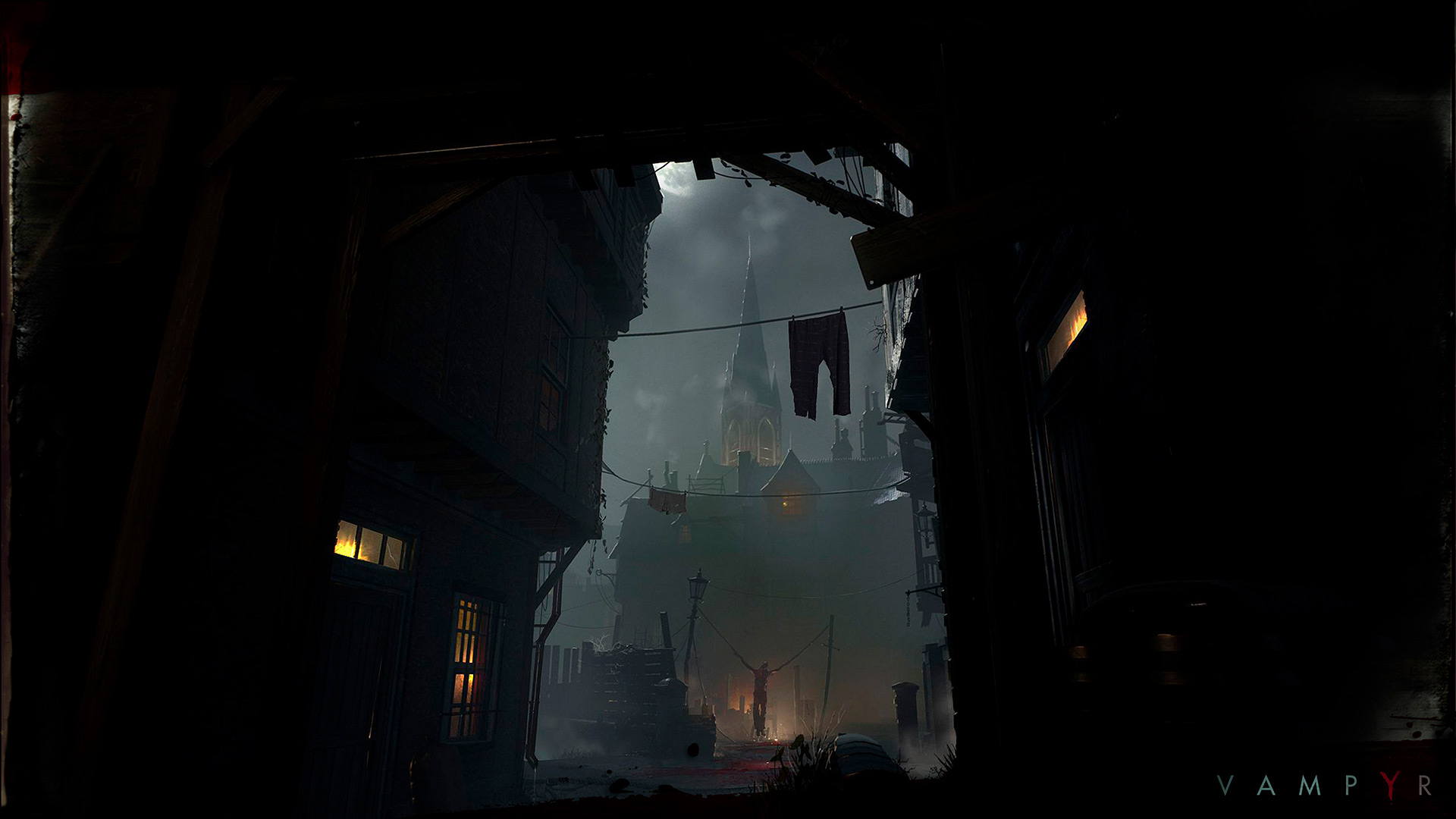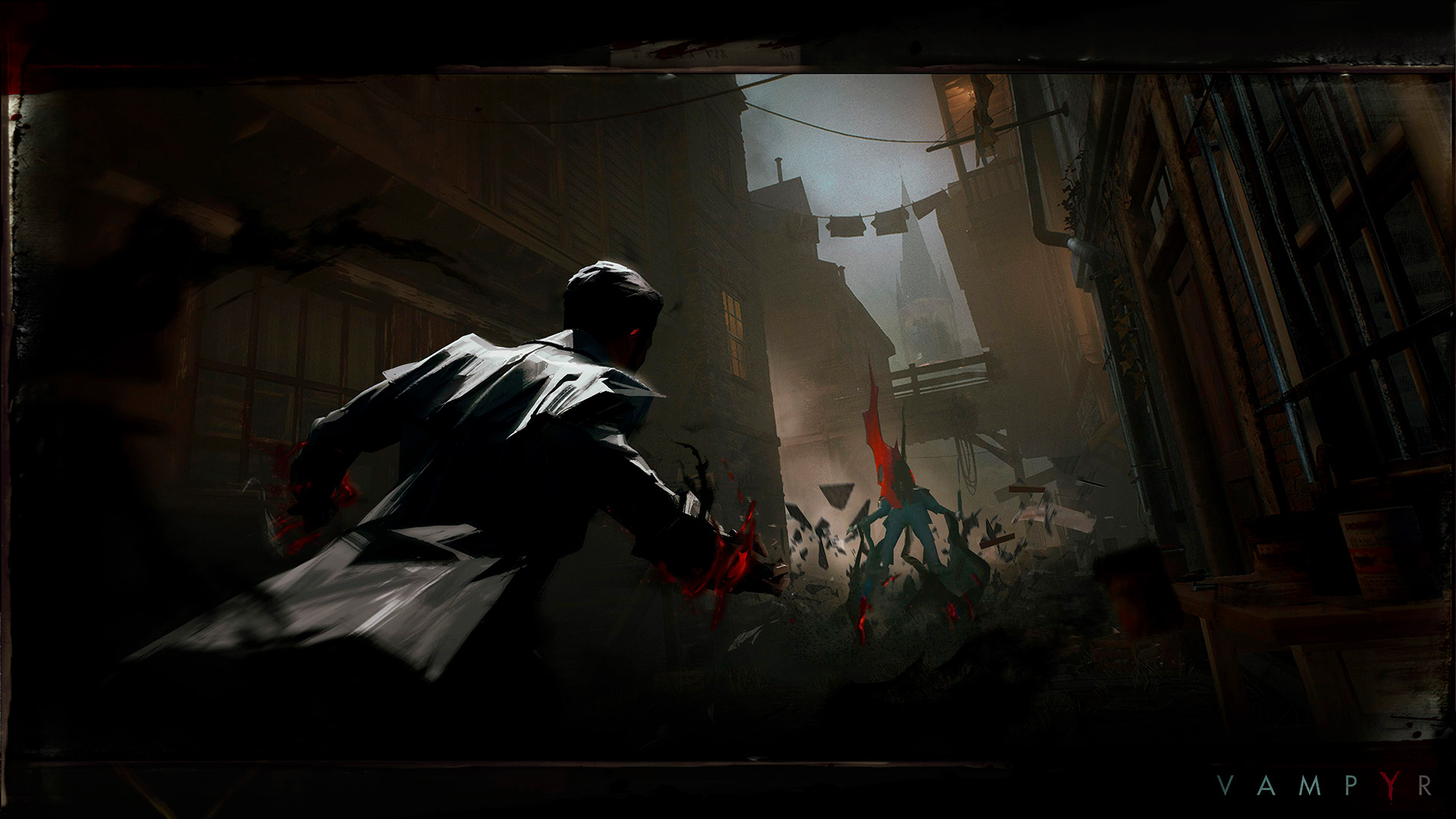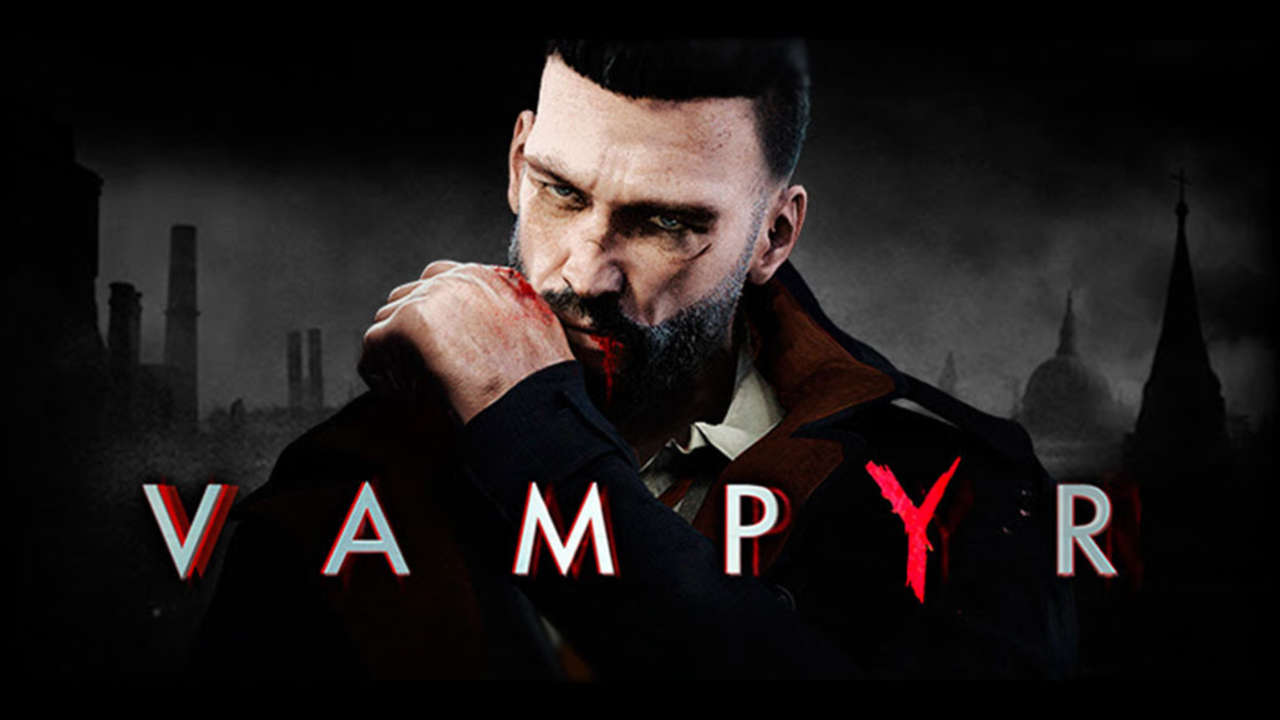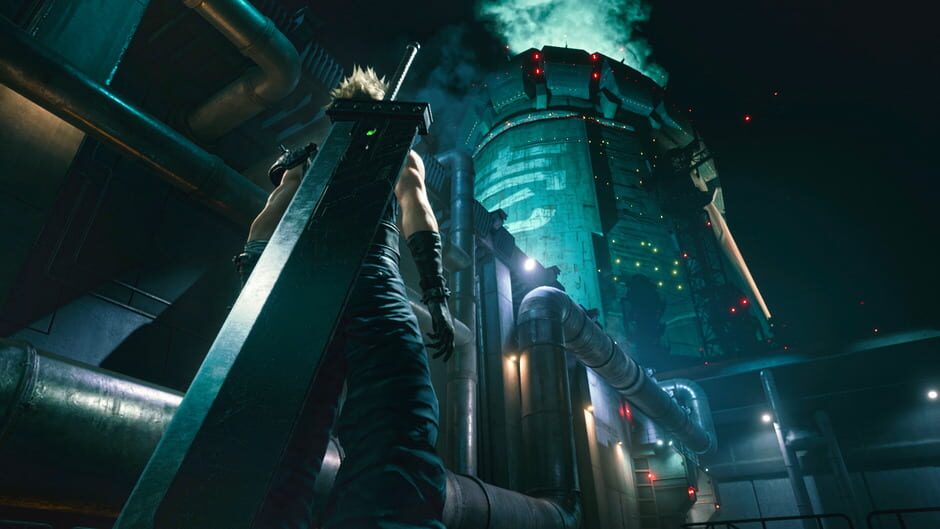[gravatar email=”thomaspbusby@gmail.com” size=”32″] Thomas Busby
Vampyr is one of those games whose ambition exceeds its capabilities. We played it this this month on the podcast, and all in all, we had a really good time. One thing, the combat, kept coming up for me over the hours I spent with it, though. No matter how hard I tried to like the combat (and I really did try) I couldn’t help but be left with a hollowness.
This hollowness really hit hard too. The complete package of Vampyr is strong. Its one of those rare, ambitious games that pushes you in new directions and forces you to consider the impact of your choices. It has a heart and a pulse that some bigger games really strive for but somehow miss. The strength of this ambition, this awareness of what it is and what it wants the player to experience opens up the combat to scrutiny, ultimately, derailing it.

That article I linked to above were my initial impressions after a handful of hours. It reads definitively because I thought I knew the ebb and flow at that point. I thought I pinpointed its rhythms and confidently wrote down my analysis. I was wrong on this. My overall take reads as such, “Once you level up a bit …you’ll go from struggling to enjoying yourself in no time. So, while not the tightest, most dynamic system around, it gives you plenty of progression paths that elevate the combat and set the leveling system apart from your standard Ubisoft-style skilltree.” Oh boy, was I wrong.
I know its intimidating to throw am opinion up and fear that its gonna pigeonhole you. Will it sit with you? Will it sit on you? Will it be something you just can’t shake? No, thankfully! Game criticism has fluidity to it. And a good thing too, given the fickle nature my playing can sometimes bring out of me. I played Vampyr for 5 hours, was struggling for some of that, made a few changes and viola! All is better! The combat was on the up and up. Sadly, this trajectory did not continue. Plateauing early, the dynamism hinted at early on was just a tease.
The strengths of Vampyr come at you with confidence and bravado. Atmosphere. Interlocking dialogue options. An incredibly layered morality system. Vampy’s combat is what links all these together, serving as the connecting chain between the games environments and topping each chapter with a boss fight. Because it links together the most confident parts of Vampyr, the weakness of it is exemplified. I had inklings from the start of the combat’s deficiency, but I was hoping that it was a learning curve. I noticed from the start that the combat lacked a responsiveness to it. There was a little hiccup whenever you dashed or attacked. The camera moved fine, but was just behind where you expected. It felt sluggish. I didn’t know it at the time, but I now can settle on the animations in Vampyr as the culprit. What’s there is good enough, and good enough is just it. They have a certain jankiness and lack of fluidity to them, like there are a few frames of animation missing with each swing of the arm or stride of the legs. The actions of either yourself or your enemies don’t have grace to them. Its a shame too.

Some of the combat scenarios are fun enough, but there isn’t that sense of controlled chaos. That sense of being in over your head, having to juke and jive just so, knowing that one false move is the end of you but also that “you got this!” Animations really help with this. They present a diversity of options that the player can work with, rife for exploiting. Seeing what looks like the same slash attack or the same movements from every enemy does not bestow a sense of curiosity. Couple this with the same attack animations from your player character and tedium sets in. When a player’s knowledge of a system caps early it leads to a negative type of understanding, one with neither depth nor width.
To draw a comparison, lets look at Bloodborne. Every enemy type has a specific movement pattern and a specific body type. They move with fluidity and they move uniquely. I mention all of this, because dashing in and out of danger is the center of both Bloodborne’s and Vampyr’s combat, and it works so well in the former because the player can manipulate the space around every enemy type with precision. The hitboxes in Bloodborne are incredibly precise, and correspond to the wild animations of its enemies almost perfectly. Couple this with the expansive movesets of each enemy type and the illusion of fighting living, breathing creatures, not just a computer program, hits hard. There is a chaos in the combat that you learn to control through precision.

While the basic enemy encounters in Vampyr lack this fluid chaos, I make this comparison to Vampyr with its boss fights in mind mostly. The common enemies are dispatched similarly enough, but the bosses throw a lot at you. There are magic attacks, AoE attacks, enemy summoning, dash attacks. You get the sense playing through that neither the combat nor the fights were built with the other in mind. I found myself wishing that the developers didn’t put so much faith in their combat systems; they aren’t up to the challenges the developers expect you to overcome.
Enough of all that though; lets end in this thing on a high note. Even though Vampyr is weighed down by the combat, and even though the combat isn’t quite there, Vampyr still overcomes every complaint. There are lots of little nagging issues, but the combat is what stands out; there’s just so much of it. Even so, seeing a game like this capture my heart and my mind is nice. It reminds of an obscure PS2 or PS3 title, when new IPs were a dime a dozen and developers really went for it. Most of those failed, but I’d like to think if Vampyr was made then, we’d still be seeing iterations on the formula today.
Don’t stop DONTNOD.
Thomas is a fan of all videogames, but has a special place in his heart for demanding, technical, twitch gameplay. He can be found hosting the Splash Damage podcast or @tbuzzworthy.
Currently playing: Super Smash Bros. Ultimate, Starlink: Battle for Atlas, Dynasty Warriors 9, Prey



